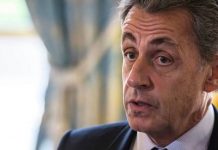The executive chairman of the Federal Inland Revenue Service (FIRS), Mr Zacchaeus Adedeji, has said that the surge in the federal government’s revenue is not an indication that borrowing would stop.
Recall that President Bola Tinubu had said early in the month that the government had met its revenue target for 2025 ahead of schedule and would no longer rely on borrowing to fund its budget.
However, back in July, the president had written to the national assembly, requesting for the approval of $21.5 billion external loan, including $2 billion foreign currency bond and N757.98 billion bonds to settle pension liabilities under the contributory pension scheme (CPS).
Speaking during the Meet-the-Press series organised by the presidential communications team in Abuja on Tuesday, Adedeji disclosed that the federal revenue collection rose to N3.64 trillion in September 2025, a 411 per cent increase from N711 billion realized in May 2023.
He explained that the increase was fueled by higher non-oil receipts, with FIRS’ non-oil collections topping with N1.06 trillion compared to N151 billion two years earlier; oil, N644 billion and VAT N723 billion.
However, he said the government would continue to borrow despite the significant revenue inflows.
“Borrowing is not a problem…is borrowing not part of the budget we submitted to the national assembly. Was it not approved? Are we borrowing aside what was approved?”
The FIRS chief stated that borrowing is an integral component of Nigeria’s financial ecosystem and overall economic plan, stressing that the government’s approach is designed to balance revenue performance with long-term development objectives.
“What is the component of a country’s budget? You have your expenditure, revenue, and loan in all budgets. So, if my expenditure for this year is N100, 000 and my plan is that N80, 000 will be from my revenue, I will borrow N20, 000. If I’ve done revenue of N90, 000 and I’m borrowing N10, 000 according to what I have in my budget, what is the problem with that?
“Borrowing is not a problem. Don’t forget that banks are part of our economic ecosystem. There is no country or individual in the world that survives based on its own income. Don’t forget that when the government borrows from banks, it will pay interest. It’s from that interest that they pay their salary. It is from the salary that the banks pay taxes to the state government; it is from this profit, the difference between deposits and lending, that gives them the profit that I collect taxes from,” he said.
Adedeji explained that government borrowing is not used to pay salaries but rather to secure long-term investments.
He said projects with benefits that outlive the present generation should not be shouldered entirely at once; for example, borrowing to build a road ensures that future users can contribute through taxes, thereby paying their fair share over time.
He maintained that borrowing is a critical element of any sound economic plan, and no company or country can grow sustainably without it, since it is integral to a viable nation’s ecosystem.
























































